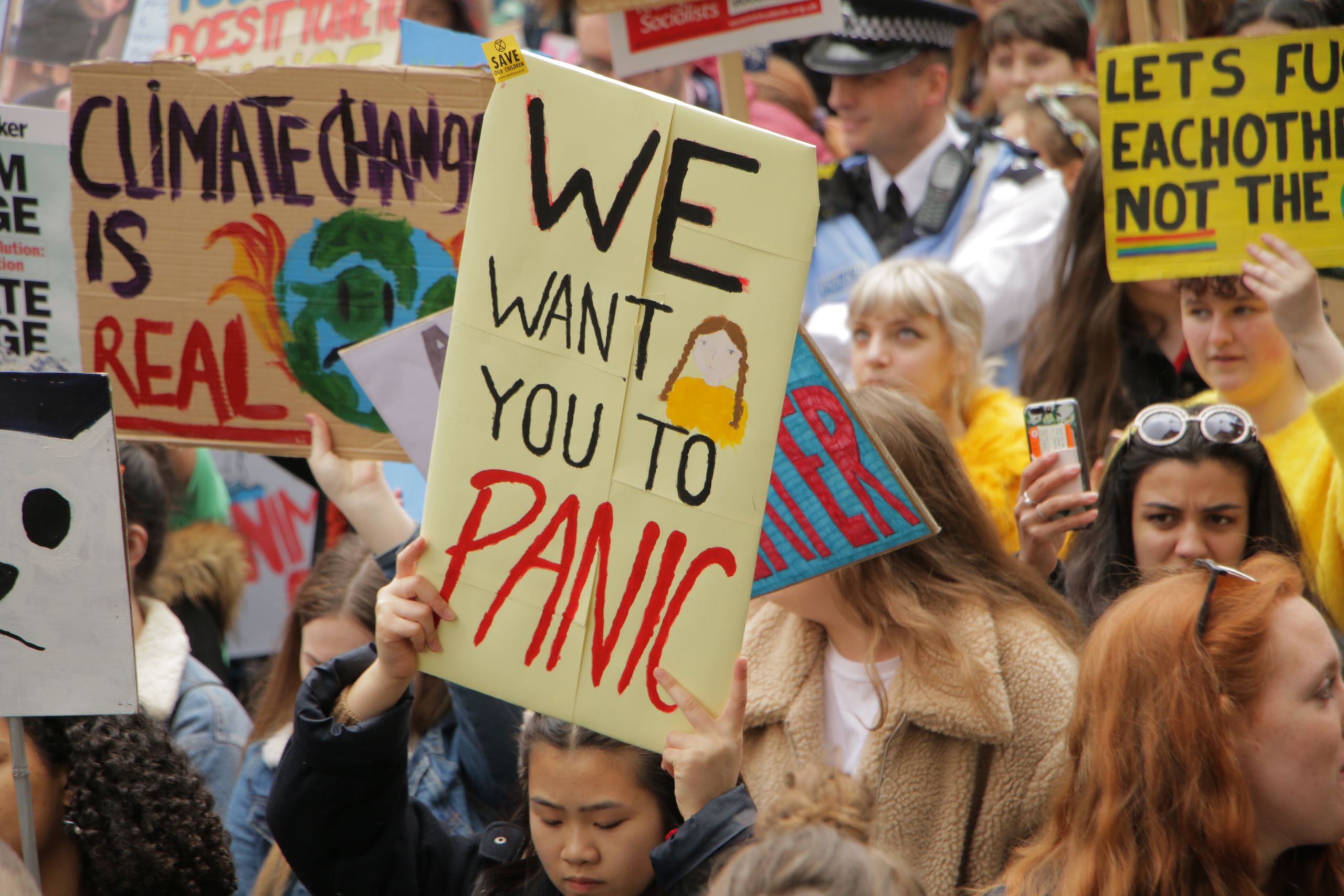Climate Strike
Why We're Striking

From September 20 to 27, thousands of people of all ages are coming together in 150 countries to demand action from their governments on climate change, as part of a planet-wide series of actions inspired by climate activist Greta Thunberg’s weekly Fridays for Future protests in Sweden. For months, young people around the world have been participating in Greta’s weekly strikes to demand action from politicians. Their message is simple: the consequences of climate change are far worse than anything we can imagine and must be addressed as such. No one is impervious to climate change’s myriad and far-reaching effects. Thus, we all must mobilize to make history and enact change.
The CCPA will be one of many groups participating in the global Climate Strike. For decades, we have been drawing attention to climate change and the need for bold and concrete action that acknowledges the reality we all face. We believe that the next few years are a critical window during which bold steps must be taken to avoid the worst impacts of climate change and human-led environmental degradation.
This is why we’re striking.
Our changing environment is a major concern for voters in this federal election. As former CCPA-BC director and Simon Fraser University adjunct professor, Seth Klein points out in his recent analysis, polling shows that people across Canada are ready for drastic action to stop climate change. One in two Canadians say we need urgent action to reduce emissions and 9 out of 10 voters see climate action as important or urgent. It’s obvious that climate change is an issue that transcends political lines.
We frequently talk about the world we’re leaving behind for our children. As temperatures rise and weather becomes increasingly unstable, that future is more and more uncertain. The recent Intergovernmental Panel on Climate Change (IPCC) report spells out just how bad the crisis is. With only around 12 years left to keep global warming to a maximum of 1.5 degrees celsius, governments everywhere need to enact far more ambitious policies to guarantee our planet’s survival. This includes cutting global carbon emissions by 45% by 2030 and scaling up clean energy production. As CCPA Saskatchewan Director Simon Enoch notes, “Urgent, radical action will soon be the only reasonable means forward to a sustainable future.”



With the recent approval and purchase of the Trans Mountain pipeline expansion by Canada’s federal government, it’s hard to feel like our leaders are taking the IPCC’s warning to heart. The fact that the pipeline was re-approved by the Canadian government only a day after a declaration of a national climate emergency was made in Parliament demonstrates the troubling disconnect between our policymakers words and their actions. Further, investing in this project diverts funds that could otherwise be earmarked to jumpstart Canada’s just transition. As CCPA-BC research associate David Hughes explains, the pipeline’s $12 billion price tag is just one of many bills that taxpayers will have to pay to maintain the project.
So how did we get here?
The Corporate Mapping Project (CMP), a partnership between academic and community-based researchers dedicated to promoting transparent public-policy has been busy shedding light on how corporate power and influence prop up and generate political support for Canada’s fossil fuel sector. The CMP’s database of who’s who in the fossil fuel sector shows that these players are linked to every part of our economy, from banks to think tanks and lobby groups, and have a remarkable amount of influence over federal and provincial government policy.
It’s perhaps unsurprising, then, in this landscape that in his report, Heating Up, Backing Down: Evaluating recent climate policy progress in Canada, CCPA Senior Researcher Hadrian Mertins-Kirkwood finds that the country is actually backsliding on climate policy in the face of rising environmental threats. Action is being undermined both by a narrow and polarized debate on carbon pricing, which obscures other effective solutions, as well as an unwillingness by Canadian governments to introduce explicit policies to restrict fossil fuel production.
It’s obvious that the time when piecemeal reform on pollution and fossil fuel production could stand in for broad and bold leadership has passed. What is heartening is that this moment of climate crisis could be used as a catalyst to build not just a society that is not just more sustainable society, but more equitable as well. One solution being proposed is the Green New Deal, a plan meant to tackle the crisis through sustainable societal and economic reform. In his interview for the Monitor with CCPA Manitoba Director, Molly McCracken, LEAP co-founder Avi Lewis emphasizes that a Green New Deal isn’t just a response to climate change. It’s also a much-needed social movement that aims to address social injustice and create a fairer economy.
The situation is dire. But there are bold, achievable solutions at hand that Canada can afford to implement today. What’s missing is the political leadership to enact them. Our annual Alternative Federal Budget clearly states that a reduction of greenhouse gas emissions to 50% below 2005 levels is not just a crucial step in the right direction, but it is entirely possible with the right mix of bold policy changes, including ending fossil fuel subsidies and ramping up a just transition to a clean economy. For some, the rate of the destruction of the environment can make it feel like there is no point in even trying to stop what seems to be inevitable. The amount of work that needs to be done is daunting, there’s no doubt about that.
But the cost of doing nothing is far worse.
“The unfolding climate crisis presents enormous emotional challenges. Despair is a common and rational response to continued inaction on this problem. But for all the bad news, there is also a clear way forward: one that ensures a livable planet for us and future generations without requiring sudden undue hardship,” writes CCPA Researcher Mertins-Kirkwood.
This is why we’re striking.




